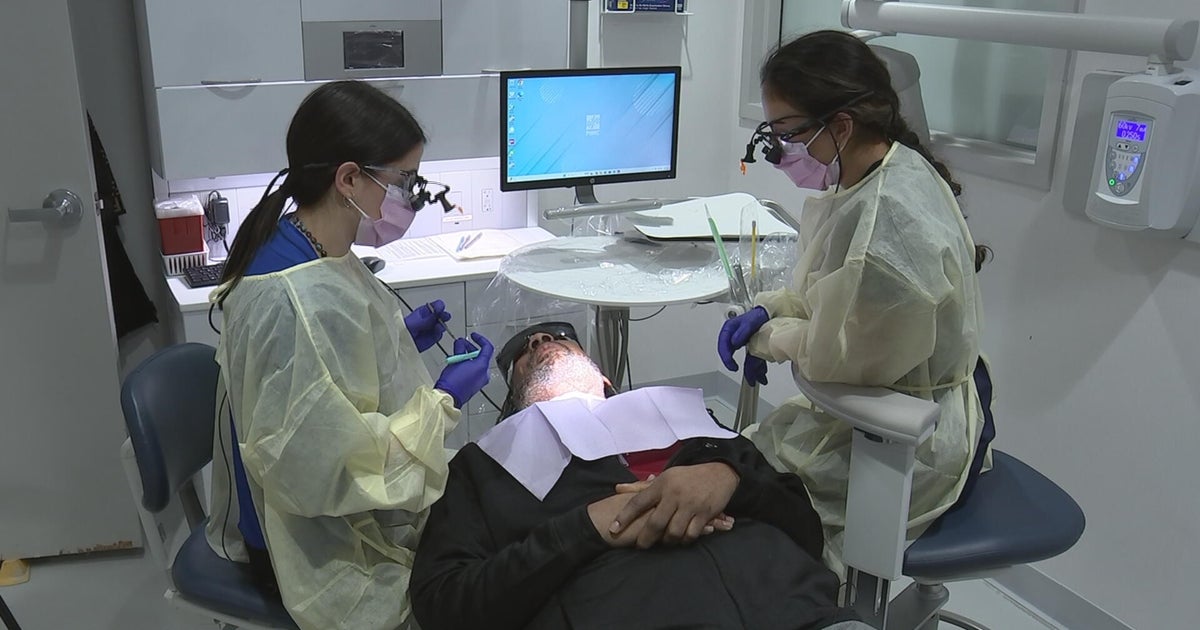"Silent spreaders" could be behind half of COVID-19 cases, study finds
With "silent transmission" of the coronavirus possibly accounting for half of all COVID-19 cases, more testing needs to be done, Dr. Ron Elfenbein said on CBSN Monday. The estimate that 50% of cases may be spread by people who aren't showing symptoms is based on a model published by the National Academy of Sciences.
"If it's really true that 50% of the spread of this comes from asymptomatic people or presymptomatic people, then the only answer to that is to test the heck out of everybody and just expand our testing capacity as much as possible," Elfenbein, an emergency care physician in Maryland, said.
Asymptomatic means you are infected but don't ever get sick, while presymptomatic means you will go on to develop symptoms but haven't shown them yet, Elfenbein explained. In both cases, you can spread the virus to others without knowing it.
"Silent transmission alone can sustain outbreaks even if all symptomatic cases are immediately isolated," the authors of the study wrote. "Our findings highlight the urgent need to scale up testing of suspected cases without symptoms, as noted in revised guidelines by Centers for Disease Control and Prevention."
Antibodies and immunity
Another study by scientists at King's College London shows that antibody levels in people who were diagnosed with COVID-19 significantly fell after a few months. The study only looked at 90 patients, but Elfenbein said "their conclusions sound very valid."
While 60% of people in the study had "potent" antibodies when they were battling COVID-19, only 17% had the same level of potency three months later, the researchers found.
"This kind of punches a hole in" the prospects for herd immunity, which is when a significant part of the population is immune to the virus, either because they've already had it or have been vaccinated, Elfenbein said.
"Now you don't know that you can't get it a second time," he said, adding that there is anecdotal data of people getting it twice. "So this is really bad news."
While there is no published data yet, in cases where people are testing positive for the virus a second or third time, it "tends to be worse and worse and worse each time," Elfenbein said.
"Some people would argue that we're not really seeing a secondary infection, we're just seeing a reactivation of the initial virus, but the people that we're talking about had multiple negative tests, so they tested positive, then had multiple negative PCR tests, then tested positive again," he said.
This is also different from long-haul syndrome, which is when people continue to suffer from lingering symptoms for months even though they don't test positive again for the virus, he said.



